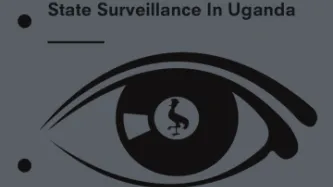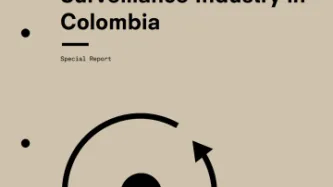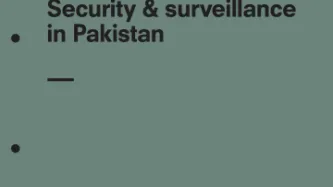Advanced Search
Content Type: Long Read
We hate to say we told you so.
Privacy International has for years warned that powerful surveillance technologies are used to facilitate serious human rights abuses with insufficient technological and legal safeguards against abuse.
We now have the most solid evidence to date that we were right. Our latest investigation uncovers disturbing evidence that substantiates our long held concerns.
Today Privacy International publishes an investigation (PDF) into communications surveillance in…
Content Type: Report
Over a dozen international companies are supplying powerful communications surveillance technology in Colombia. Privacy International examines the actors across the world involved in facilitating state surveillance.The report is available in English and Spanish.
Content Type: Report
For nearly two decades, the Colombian government has been expanding its capacity to spy on the private communications of its citizens. Privacy International's investigation reveals the state of Colombia's overlapping, unchecked systems of surveillance, including mass surveillance, that are vulnerable to abuse.
See the report in English and Spanish.
Content Type: Press release
The release of a new report by Privacy International exposes Colombia's intelligence agencies' previously unknown history of developing communications surveillance capabilities outside of lawful authority.
The report “Shadow State: Surveillance law and order in Colombia” reveals, via previously unreleased documents, the Colombian police agencies' and intelligence services' long history developing surveillance systems. Rather than building a well-regulated system of surveillance after Colombia…
Content Type: Advocacy
The Pakistani government has significantly expanded its communication interception activities. This Privacy International report covers the intelligence services plan to capture all IP-traffic in Pakistan and other initiatives, pointing to gaps in the laws governing surveillance.
Content Type: Report
This report is the result of research conducted by researchers at Privacy International, coordinated by the London School of Economics and Political Science. The report was commissioned by the International Development Research Centre.
New technologies such as mobile phones and electronic medical record (EMR) systems promise to transform the provision and management of medicine all over the world. In the U.S. alone, billions are being spent on information technologies for healthcare.
Content Type: Report
This report has been prepared by Privacy International following a six-month investigation into the privacy practices of key Internet based companies. The ranking lists the best and the worst performers both in Web 1.0 and Web 2.0 across the full spectrum of search, email, e-commerce and social networking sites.
The analysis employs a methodology comprising around twenty core parameters. We rank the major Internet players but we also discuss examples of best and worst privacy practice among…
Content Type: Report
This report investigates the probable effect of the proposed UK national Identity Card system on people who are marginalised, who suffer social disadvantage or exclusion, and those who are disabled. The work focuses on the biometrics element of the government’s proposals (specifically facial recognition, ngerprinting and iris scanning).
The Report provides a specific assessment of the recently published biometrics trial conducted by the UK Passport Service (UKPS), and compares these…






